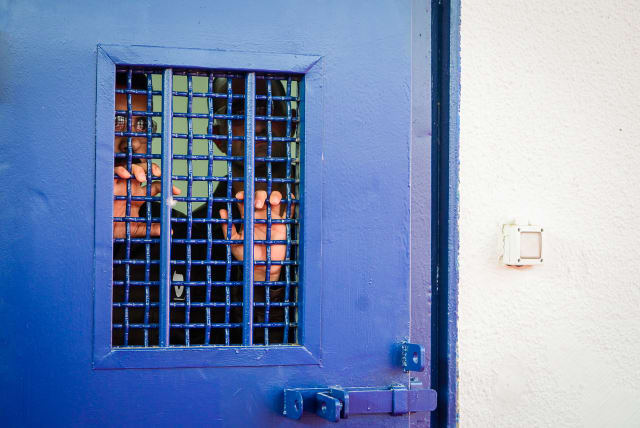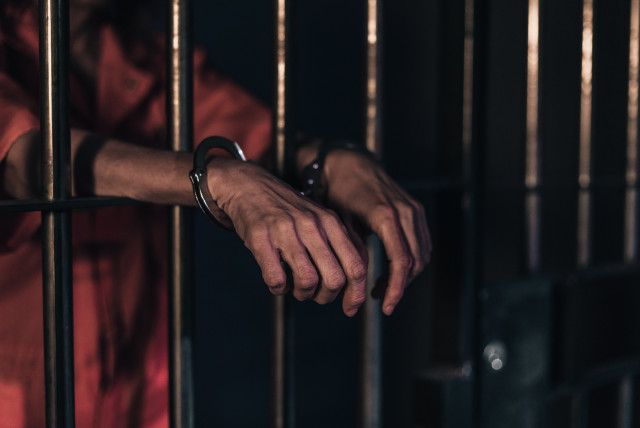Israel denies parole of Palestinian terrorist Walid Daqqah

The appeal for Palestinian terrorist Walid Daqqah’s early release was based on his worsening health condition, which supporters said required consistent treatment.
The early release of terrorist Walid Daqqah was denied at a parole hearing on Wednesday, after a protest and social media campaign by the family of Daqqah’s victim which drew support and statements from Israeli politicians and activists.
Daqqah’s family said that the parole board decision was a death sentence for the ill terrorist, who is afflicted with bone marrow cancer. The appeal for Daqqah’s early release was based on his worsening condition, which supporters asserted required consistent medical treatment outside of prison.
Ortal Tamam, niece of IDF Moshe Tamam who was tortured and murdered by Daqqah’s Popular Front for the Liberation of Palestine (PFLP) cell in 1984, welcomed the decision and told The Jerusalem Post that she hoped the story would end with Wednesday’s hearing.
“There are still special committees, and there may still be more attempts by the terrorist to free himself,” Tamam in a Facebook post.
Intensification of the protests for Israel to parole Walid Daqqah
The Daqqah family called on legal organizations and Palestinian factions to intensify their protests and efforts for the convict’s release before he succumbed to his disease. Tamam said that she didn’t have any expectations from their enemies, but would continue to have expectations of Israel and the flag that her uncle died for.
Both families and their respective supporters verbally confronted each other in front of the Ramle Prisons Commission early Wednesday morning. Daqqah’s family said that they received death threats and had been subject to racial statements. Tamam denied these allegations, saying that they were not racist people so there was no legitimacy to the claims. She said that they had told Daqqah’s supporters that the man was a terrorist and that they were indoctrinating their children into a life of hate and death.
Tamam on Wednesday thanked supporters from across the political spectrum for their aid in raising awareness on the issue and ensuring that authorities would not “reward” or submit to terrorism.
“If you put everyone in a room they wouldn’t agree on a million things. There were people on the far Right and far Left and the center, and they were all good, Zionist people and moral people” who joined protests. “Thank you to our elected officials, from the coalition and opposition, who came and said clearly that there is no politics in the war on terrorism.”
OTZMA YEHUDIT MK Yitzhak Kreuzer said at the Knesset plenum on Tuesday that he would attend the protest and that Daqqah deserved no mercy. Diaspora Minister Amichai Chikli said in a Tuesday social media post that Daqqah had been paid hundreds of thousands of shekels by the Palestinian Authority in so-called pay-for-slay stipends, and he called on Interior Minister Moshe Arbel to revoke the Israeli citizenship of the murderer and other Israeli-Arab members of his PFLP cell.
Tamam said that people she had never even met had given their all to aid the family, which included influencers. She thanked lawyers and organizations that took up her family’s cause, including attorney Maurice Hirch, the Bitchonistim, Im Tirzu, the Choose Life bereaved families forum, and the Religious Zionist Youth movement.
The controversy of the parole hearing
Daqqah’s parole hearing was held last Wednesday, but the decision has been delayed by a week.
The parole hearing was the subject of controversy not only due to Daqqah’s crimes, but also because the family was not properly informed of the terrorist’s potential release, and because his case was reportedly heard before a regular committee rather than a special one. Tamam previously explained to the Post that terrorist paroles were only supposed to be heard before special committees, and that regular committees were more lenient.
Tamam told the Post on Wednesday that the Israel Prison Service continued to insist that these failings were the result of “human error.”
Daqqah and members of his PFLP cell were sentenced to life in prison in 1986. The group had originally planned to capture a soldier and extract him or her to Syria for ransom. The terrorist team abducted Tamam, but when their plan to move him failed, they tortured, disfigured, and sexually mutilated the soldier before executing him. sDaqqah’s life sentence was commuted to 37 years in 2012 by then-president Shimon Peres. He was given another two years for involvement in prison phone smuggling.
In prison, Daqqah gained renown as a writer and intellectual, according to the PFLP-affiliated Samidoun Palestinian Prisoner Solidarity Network. He published his works and fathered a daughter using smuggled seminal fluid.
Jerusalem Post Store
`; document.getElementById("linkPremium").innerHTML = cont; var divWithLink = document.getElementById("premium-link"); if (divWithLink !== null && divWithLink !== 'undefined') { divWithLink.style.border = "solid 1px #cb0f3e"; divWithLink.style.textAlign = "center"; divWithLink.style.marginBottom = "15px"; divWithLink.style.marginTop = "15px"; divWithLink.style.width = "100%"; divWithLink.style.backgroundColor = "#122952"; divWithLink.style.color = "#ffffff"; divWithLink.style.lineHeight = "1.5"; } } (function (v, i) { });

